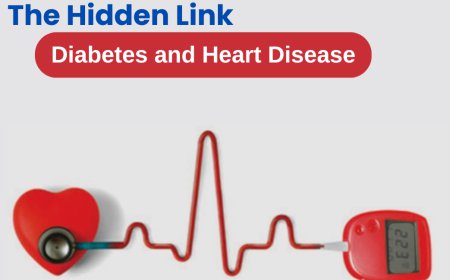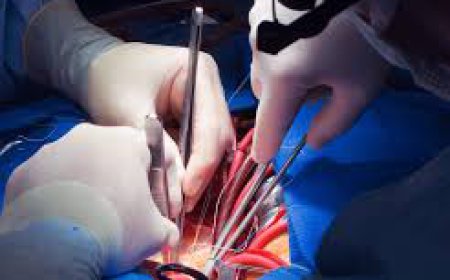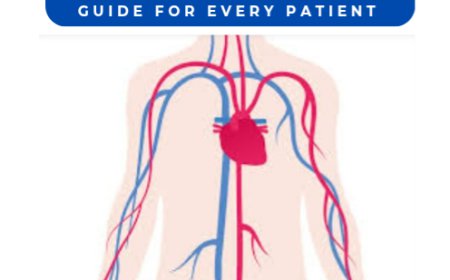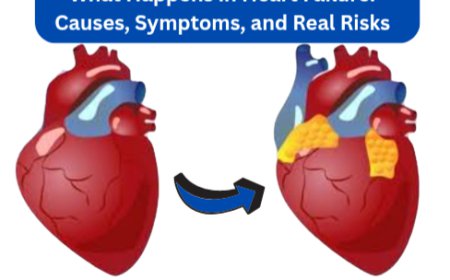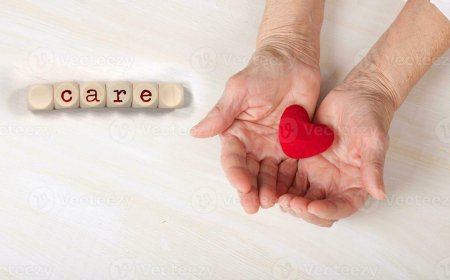Preparing for Heart Transplant: What You Need to Know Before Surgery
Being told you may need a heart transplant is not easy. It brings fear, questions, and uncertainty. But it also means there’s hope—your medical team believes that with the right care, you can survive and thrive with a new heart.
This guide will help you understand what really happens before the transplant, how to prepare mentally, physically, and practically, and why this preparation matters more than anything.
When Is a Heart Transplant Considered?
A heart transplant is considered when:
Your heart is failing despite all medical treatment.
You experience frequent hospitalizations, breathlessness at rest, and a severely limited quality of life.
You have no major other organ damage that would rule out transplant.
Your heart’s pumping function (EF) is critically low, often below 20%.
This isn’t a decision made lightly. A transplant is not a cure, but a chance—to live longer, live better, and regain independence.
Step 1: Evaluation – Are You a Candidate?
Before being listed for a transplant, you’ll go through a comprehensive evaluation. This may include:
Blood tests (liver, kidney, sugar, clotting).
Cardiac tests (Echo, angiogram, right heart cath).
Lung function tests.
Infection screening (TB, HIV, Hepatitis).
Cancer screening (CT scan, PET scan).
Dental and ENT check-ups.
Psychological assessment.
Financial and social support evaluation.
Why so many tests?Because a transplant involves life-long medication and follow-up. We must ensure your body and support system are ready to handle it.
Step 2: Mental Preparation – The Unspoken Half of Recovery
One of the hardest things for patients is not the surgery itself—but what comes before and after.
Here’s what I tell my patients:
“You don’t just need a strong body. You need a strong mind.”
Accept the reality: Your heart is failing, but you have a path forward.
Stay engaged: Learn about the process, ask questions, take notes.
Prepare for uncertainty: You may be listed for weeks or months before a suitable donor heart is available.
Don’t lose hope: Many patients lose confidence during the wait. Stay in touch with your transplant team.
Step 3: Physical Preparation – Get Your Body Ready
A weaker heart doesn’t mean you stop moving. Quite the opposite. You must:
Stay as active as safely possible (light walking, chair exercises).
Eat a heart-healthy diet: Low sodium, low sugar, high protein.
Avoid infections: Hand hygiene, masks, avoid crowded places.
Stay up to date on vaccinations.
Avoid smoking and alcohol completely.
Maintain ideal body weight: Being overweight can delay surgery and complicate outcomes.
Even small improvements in strength or stamina before surgery can lead to better outcomes after.
Step 4: Build Your Support System
After a transplant, you won’t be alone—but you also can’t be alone.
You’ll need a dedicated caregiver—someone who understands your medications, appointments, and follow-up needs.
Your family must be prepared for frequent hospital visits, especially in the first 3–6 months.
Make sure your finances and insurance are in place. Anti-rejection drugs and follow-up tests are life-long.
A strong support system isn’t optional. It’s part of your treatment.
Step 5: Understand the Waitlist and the Call
Once approved, you are placed on the transplant waitlist.
Your priority is determined by how sick you are and how well a donor heart might match you (blood group, body size, antibodies).
You may wait days or months.
When a match is found, you’ll get “the call”—and you’ll need to reach the hospital within hours.
Stay reachable. Keep your bag packed. Be mentally ready for sudden action.
A Word on Donors
Your new heart will come from someone who chose to give the gift of life. We honor their memory by treating this opportunity with respect, discipline, and gratitude.
In Summary: What You Can Do Right Now
✅ Follow all instructions from your heart failure/transplant team.✅ Attend every test and appointment without delay.✅ Stay active and eat clean.✅ Keep a positive, realistic mindset.✅ Educate your family and involve them in every step.✅ Stay hopeful—but grounded.

 Like
4
Like
4
 Dislike
0
Dislike
0
 Love
0
Love
0
 Funny
0
Funny
0
 Angry
0
Angry
0
 Sad
0
Sad
0
 Wow
1
Wow
1


